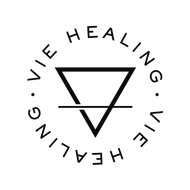Introduction
In Traditional Chinese Medicine (TCM), the concept of the Five Elements is a fundamental principle that shapes both diagnosis and treatment. Understanding how these elements—Wood, Fire, Earth, Metal, and Water—interact and influence our health can provide valuable insights into achieving balance and harmony in our lives. Join us on a journey to explore the profound connection between the Five Elements and your well-being.
The Five Elements in TCM
The Five Elements represent different phases or aspects of energy in the natural world. They are associated with specific qualities, organs, emotions, and seasons. Let's dive into each element's characteristics:
1. Wood (Mu):
- Associated Organs: Liver and Gallbladder
- Qualities: Growth, flexibility, and assertiveness
- Emotions: Anger and frustration
- Season: Spring
2. Fire (Huo):
- Associated Organs: Heart and Small Intestine
- Qualities: Passion, enthusiasm, and transformation
- Emotions: Joy and overexcitement
- Season: Summer
3. Earth (Tu):
- Associated Organs: Spleen and Stomach
- Qualities: Stability, nurturing, and grounding
- Emotions: Worry and overthinking
- Season: Late summer
4. Metal (Jin):
- Associated Organs: Lung and Large Intestine
- Qualities: Clarity, precision, and order
- Emotions: Grief and sadness
- Season: Autumn
5. Water (Shui):
- Associated Organs: Kidney and Bladder
- Qualities: Wisdom, adaptability, and fluidity
- Emotions: Fear and anxiety
- Season: Winter
How the Five Elements Affect Your Health
In TCM, health is seen as a state of balance and harmony among the Five Elements. Imbalances or disharmony in any element can lead to physical, emotional, and mental health issues. Here's how the Five Elements can affect your health:
1. Balance and Harmony: When all Five Elements are in balance, you experience vitality and well-being.
2. Imbalances: Excess or deficiency in an element can lead to specific health issues. For example, a Wood element imbalance may manifest as anger or liver-related problems.
3. Seasonal Influence: Each season is associated with an element, and TCM suggests adjusting your lifestyle and diet to align with the current season to maintain balance.
4. Emotional Connection: Emotions are closely tied to the elements. Recognizing and managing emotions can help maintain harmony within your elemental constitution.
5. Holistic Approach: TCM treatment often involves restoring balance by addressing both physical symptoms and emotional well-being.
Balancing the Five Elements
Balancing the Five Elements in your life involves a holistic approach that includes diet, lifestyle, exercise, and emotional well-being. Here are some general tips:
1. Mindful Eating: Consume a variety of foods representing the Five Elements to support balance.
2. Seasonal Alignment: Adjust your activities, diet, and self-care routines to harmonize with each season.
3. Emotional Awareness: Practice emotional intelligence and find healthy ways to express and manage your emotions.
4. TCM Practices: Consider acupuncture, herbal remedies, or energy practices like Tai Chi or Qi Gong to support elemental balance.
Conclusion
Exploring the Five Elements in TCM is an opportunity to deepen your understanding of the intricate connection between your health and the natural world. By embracing the wisdom of the elements, you can embark on a journey toward greater balance and harmony, both within yourself and in your environment. In TCM, true health is a reflection of being in tune with the ever-changing energies of the Five Elements.





